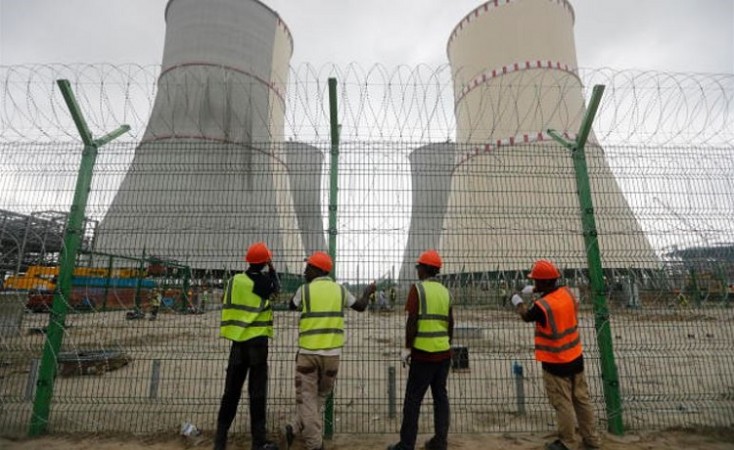
Bangladesh has marked a historic milestone as it recently welcomed its inaugural shipment of uranium fuel from Russia, a significant step in the nation's pursuit of nuclear energy. This achievement solidifies Bangladesh's position as the 33rd country globally to harness nuclear power.
In a joint venture with the Russian state-owned atomic corporation, Rosatom, Bangladesh is in the process of constructing its first nuclear power plant, the first of two planned facilities. This monumental $12.65 billion undertaking is predominantly funded by a Russian loan, to be repaid over 28 years with a generous 10-year grace period.
Prime Minister Sheikh Hasina conveyed her immense pride and joy during a virtual conference with Russian President Vladimir Putin, an event dubbed the "nuclear fuel delivery ceremony" by the Russian Embassy in Bangladesh. Putin, speaking via video link with Hasina, expressed his gratitude to the International Atomic Energy Agency (IAEA) for overseeing the project's progress, which originated from a bilateral agreement forged in 2011.
Rafael Grossi, the head of the IAEA, celebrated Bangladesh's accomplishments in nuclear power development, considering it a success story for newcomer nations under the agency's guidance.
The completion of the Rooppur nuclear plant, situated approximately 200 kilometers (124 miles) west of the capital, Dhaka, has faced multiple delays, primarily due to setbacks caused by the COVID-19 pandemic restrictions and Western sanctions imposed on Russia following its involvement in Ukraine. The inaugural operation of the first unit, boasting a total capacity of 2,400 megawatts, was originally scheduled for July of the following year but has been postponed.
During a recent visit to Bangladesh by Sergei Lavrov, Russia's foreign minister, the commitment to adhere to project deadlines was reaffirmed despite the obstacles posed by Western sanctions linked to the Ukrainian conflict. The state news agency TASS disclosed that Rosatom's engineering division is responsible for the design and construction of the nuclear power plants. These facilities are expected to have a lifespan of 60 years, with the potential for a 20-year extension. Furthermore, Russia will train approximately 1,500 out of 2,000 workers who will operate the plant once it becomes operational.
Bangladesh has grappled with its most severe electricity crisis since 2013, exacerbated by erratic weather patterns and financial challenges associated with fuel imports, driven by dwindling foreign currency reserves and a weakening national currency. The nation's electricity generation currently relies heavily on imported gas, the cost of which has surged following Russia's involvement in Ukraine.
Deadly Drone Attack Strikes Syrian Military College, Over 100 killed
Turkish Military Launches 3rd Air Operation Against PKK in Northern Iraq